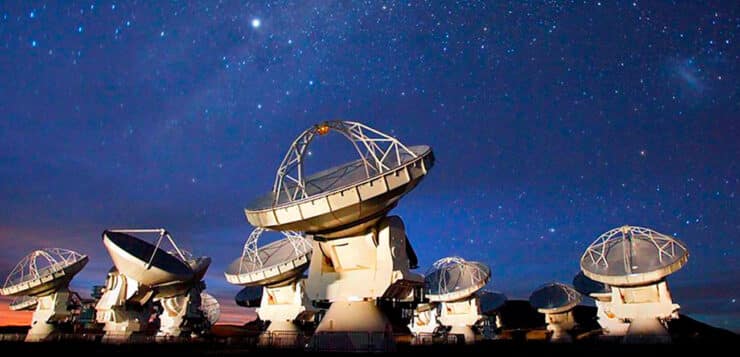In the last couple of years, Chile has become one of the main centres in the world for the development of astronomy activity. Read on to find out why Chile is one of the best destinations to study astronomy.
The Northern Skies
Astronomy activity in Chile mainly takes place in the north of the country, from the Antofagasta to the Coquimbo regions. The natural conditions of the desert, together with low light pollution, have made the area a natural laboratory for the development of astronomy.
In 1999, the then Ministry of Economy, Development and Rebuilding passed a law to regulate light pollution. The Oficina de Protección de la Calidad del Cielo del Norte de Chile was then launched (the Office for the Protection of the Quality of the Northern Skies in Chile), with a mandate to ensure regulations are applied to protect the night skies of the Antofagasta, Atacama and Coquimbo regions, which are widely known for their value for stargazing and astronomical observation.
Also, since 2015, the Consejo Nacional de Monumentos (Monuments National Council) has been working on having the skies of the north declared a World Heritage by UNESCO.
The infrastructure
In addition to having the ideal natural conditions for research development on astronomy, the north of Chile has the infrastructure to take advantage of it. Antofagasta, for example, is home to the Paranal Observatory, where the Very Large Telescope (VLT) is located. This system of telescopes is the most powerful in the planet. Also, the Chajnantor Plateau in Antofagasta is home to ALMA (Atacama Large Millimeter Array), one of the world’s biggest astronomy projects.
Even though both the VLT and ALMA projects are mostly funded by international research centers, they, along with other observatories in Chile, provide the essential data that universities work with in their astronomy programs.
Academic programs
Several higher education institutions have contributed to the development of astronomy in Chile, by offering professional degrees at undergraduate and postgraduate level. Universidad de la Serena, located in the Coquimbo and close to several observatories, offers a Bachelor’s degree, a Master’s degree and a PhD in Astronomy; Universidad de Valparaíso offers a Master’s and PhD programs in Astrophysics; Universidad Técnica Federico Santa María teaches a degree in astrophysics; Universidad de Chile, Master and PhD in science mention astronomy
If discovering the mysteries of the universe is your passion, Chile has the natural conditions, the infrastructure and the academic programs for you.
Written by:
Learn Chile: a consortium of more than 20 Chilean higher education institutions that work together, with support from Chilean government to enhance the promotion of Chile as a destination for international students who choose Chile to live the experience of studying abroad. LearnChile.cl







